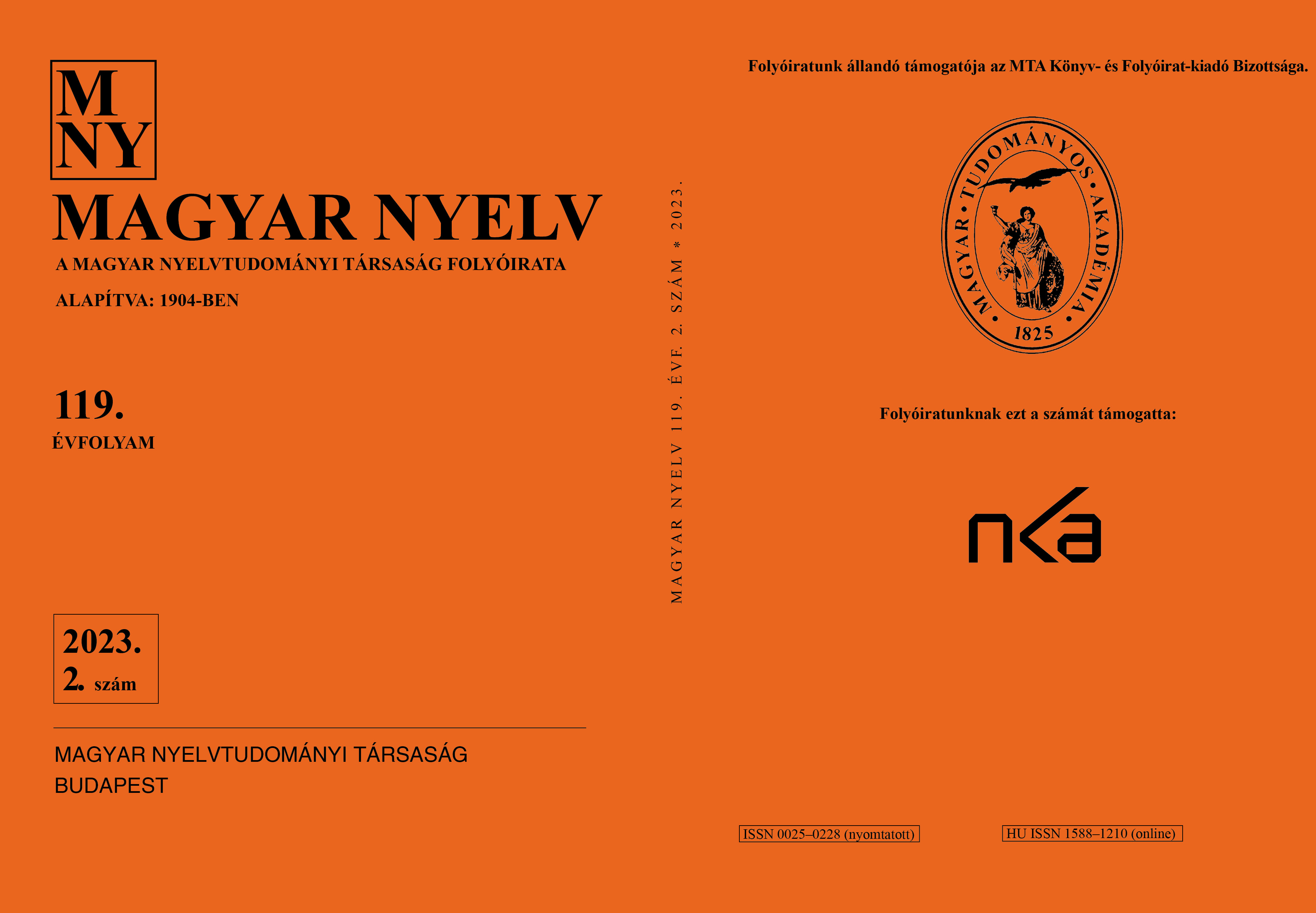On the origin of hisz ‘believe’, a mysterious Hungarian verb
DOI:
https://doi.org/10.18349/MagyarNyelv.2023.2.191Keywords:
etymology, morphology, semanticsAbstract
This verb is one of a set of Hungarian verbs with so-called unstable roots, of which there are seven: tësz ‘do’, lësz ’will be’, vësz ‘take’, visz ‘carry’, ëszik ‘eat’, iszik ‘drink’ (and hisz itself). Hisz is unique even within this group in that its imperative forms involve long ďď (spelt ggy) as opposed the short ď (spelt gy) of the other six, cf. higgy! ‘believe-imp’ ↔ tégy! ‘do-imp’. Its origin is believed by Lewy and Rédei to be found in a lexeme of the form *kämä / *kemɜ. According to Lewy, its meaning might have been ‘hard, solid’; this appears to be possible on the basis of semantic parallels. However, there are two serious problems with the etymology of the verb hisz: we have no convincing explanation for the initial h- and the source of the imperative root involving -ggy(-) is also unclear.
Downloads
Published
Issue
Section
License
Copyright (c) 2023 László Honti

This work is licensed under a Creative Commons Attribution-NonCommercial-NoDerivatives 4.0 International License.
Magyar Nyelv is a Diamond Open Access periodical. Documents can be freely downloaded and duplicated in an electronic format, and can be used unchanged and with due reference to the original source. Such use must not serve commercial purposes. In the case of any form of dissemination and use, Hungarian Copyright Act LXXVI/1999 and related laws are to be observed. The electronic version of the journal is subject to the regulations of CC BY-NC-ND (Creative Commons – Attribution-NonCommercial-NoDerivatives).
The journal permits its authors, at no cost and without any temporal limitation, to make pre-print copies of their manuscripts publicly available via email or in their own homepage or that of their institution, or in either closed or free-for-all repositories of their institutions/universities, or other non-profit websites, in the form accepted by the journal editor for publication and even containing amendments on the basis of reviewers’ comments. When the authors publicize their papers in this manner, they have to warn their readers that the manuscript at hand is not the final published version of the work. Once the paper has been published in a printed or online form, the authors are allowed (and advised) to use that (post-print) version for the above purposes. In that case, they have to indicate the exact location and other data of the journal publication. The authors retain the copyright of their papers; however, in the case of an occasional secondary publication, the bibliographical data of the first publication have to be included.



